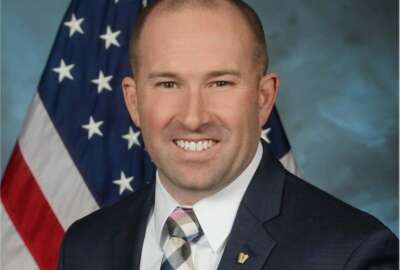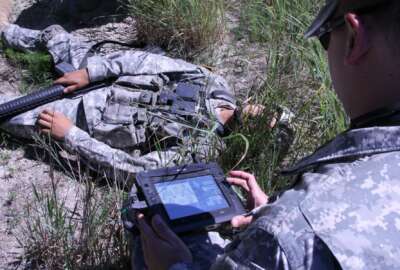
DoD, Air Force pair with HBCUs for new research consortium
DoD and the Air Force are currently considering 11 schools to lead the center.
The Defense Department, along with the Air Force, are teaming up with Historically Black Colleges and Universities to create a 15th academic-affiliated research center.
The center will focus on tactical autonomy, meaning systems that act independently under the bounded authority of human support. The systems support missions like situational awareness, force protection, cyber defense and logistics. The center will also focus on system collaboration and man-machine learning.
The collaboration will be the first academic research center affiliated with the Air Force and the 15th connected to the Defense Department.
“It’s a gap in our suite of research institutes right now that we don’t have one focused on this area of autonomy,” Air Force Secretary Frank Kendall said at the Pentagon Monday. “I’m very focused on the threat of Chinese military modernization and what that means in terms of our viability of our forces for the future. Part of the future of the military is going to be autonomy, there’s no doubt in my mind to that. We’re seeing increasing evidence, evidence for almost in every conflict that occurs.”
The Air Force is committing $12 million per year for the next five years to the collaboration. DoD will be adding an extra $2 million per year.
The Air Force and DoD are currently working with the 11 HCBUs that qualify as high-research activity schools as designated by the Carnegie Classification of Institutions of Higher Education to decide which school will lead the center. That school will be responsible for building a consortium of educational institutions to conduct research.
The collaboration is also working a secondary goal of increasing diversity and inclusion, a mission DoD has been working on since the national response to the murder of George Floyd.
“This is an opportunity to tap into universities that have enormous amount of capability in science and technology,” Kendall said. “The HBCUs put out about 30% of the scientists and engineers that are that are produced by that community.”
DoD will also work on growing the STEM community within HBCUs. The center will not work like other academic research consortia. The Pentagon wants the consortium to build capabilities, but also build its research abilities.
“We understand that there are historical inequities, and we want help them build capacity, as well as deliver results to us,” said Victoria Coleman, DoD’s chief scientist. “We want to advance their efforts to move at least one, hopefully more than one, institution from the Carnegie Foundation Research Classification from ‘R2,’ which means a high research institution, to an ‘R1,’ which is very high research.”
Copyright © 2025 Federal News Network. All rights reserved. This website is not intended for users located within the European Economic Area.
Scott Maucione is a defense reporter for Federal News Network and reports on human capital, workforce and the Defense Department at-large.
Follow @smaucioneWFED






